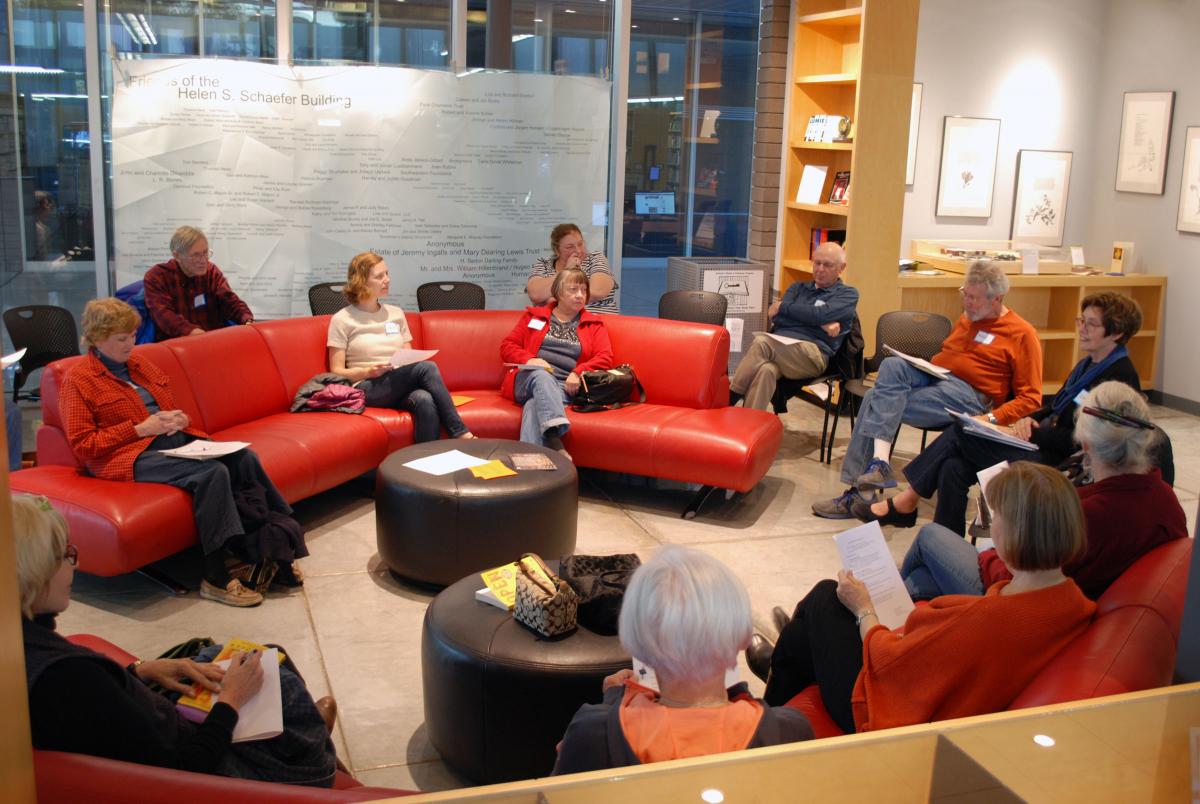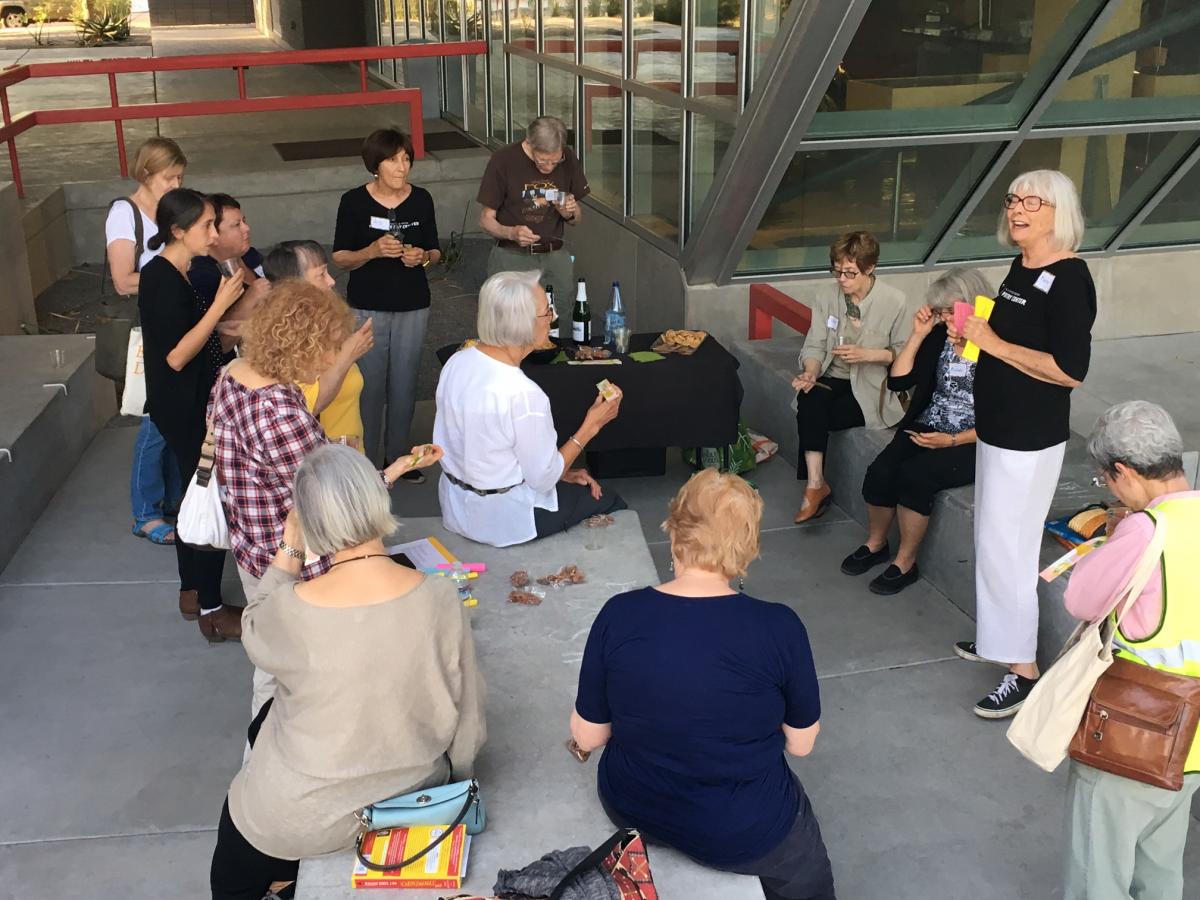The Closer Look Book Club Calls It Like It Is.
We have changed our name to the Literary Fiction Book Club.
How has it come to be that the University of Arizona Poetry Center has a book club discussion every month about a work of literary fiction? As a fellow Poetry Center Docent recently observed to me, "I don’t volunteer at the poetry center in order to read fiction."
That rocked me right back on my heels since I have been reading twenty or thirty books of literary fiction per year along with two other docents, Dorothy Blake and Colleen Burns. The Closer Look Book Club was developed by Poetry Center staffer Cybele Knowles years ago, and has been Docent-led since Cybele left in 2015. The book club appeals to people whose interest in reading great works is broad and who love words—including both poetry prose, fiction, and non-fiction. Come for the fiction, stay for the poetry, or vice versa.

The three of us love to read. I find that this is my Dream Job. At last, I can indulge in guilt-free reading because its part of my "job." Some good suggestions are made by docents, and we research contemporary books, literary prize nominees, and reviews. Then we choose an interesting palette of books and authors around a loose theme.
For instance, this year a number of the books seemed to be told in whole or part by an unusual narrator: the teenage Mexicana who is interested in getting her menfolk to cross the border back to Mexico (Into the Beautiful North, Urrea); the victims and bomb makers involved in a terrorist incident in South Delhi back in the Nineties (The Association of Small Bombs, Mahajan); a black man who wants to reinstitute slavery in current day L.A (The Sellout, Beatty). The more the list came together the more the notion of unconventional narrators seemed to run through the selections. When we read Rachel Cusk’s Outline, it struck us that her modern English woman narrator seems to use a new voice and writing style. (Un)conventional Narrators, New Writing is a fanciful ribbon that ties together our selections for the 2017-18 year.
The Literary Fiction Book Club discussions are free and open to the public. There is a group of ten or so who have been attending regularly for years, and we are generally joined by an equal number of new or less-frequent participants, making it a perfect place for people both familiar and unfamiliar with the Poetry Center and the Club. At each meeting there is a guest Discussion Leader who has read the book and has some questions to raise with the group. This year, among our Discussion Leaders, we are honored to have Gail Browne (yes, THAT Gail Browne, former Poetry Center Director) down from Phoenix to help us discuss The Sellout by Paul Beatty on Feb 14!

At our first meeting this fall (Sept 13, 5-6pm), Susan Aiken, Distinguished Professor of English, emerita, at the U of A will lead a discussion on The Association of Small Bombs, a National Book Award finalist. After the discussion, the attendees will choose the final book for the 2017-18 year from among four options they are considering over the summer (Lincoln in the Bardo, Family Life, the Tzar of Love and Techno, Underground Railroad). We will discuss that choice on April 18, 2018.
When I was a kid in Tucson in the 1950’s the old YMCA at Fifth Street and Dodge was called "The Lighthouse in the Desert." Ever since the sixties, the lighthouse in the desert for me has been the University of Arizona Poetry Center. What a beacon, broadcasting connection to the wider literary world with poetry readings, and through the years, events of all sorts, community classes, prose readings, symposia, children’s programs in the schools, family days, public library and open air discussion groups, and the Closer Look Book Club of eclectic and literary prose. And now, here we are evolving into the Literary Fiction Book Club. What a great docent “job” I have!

